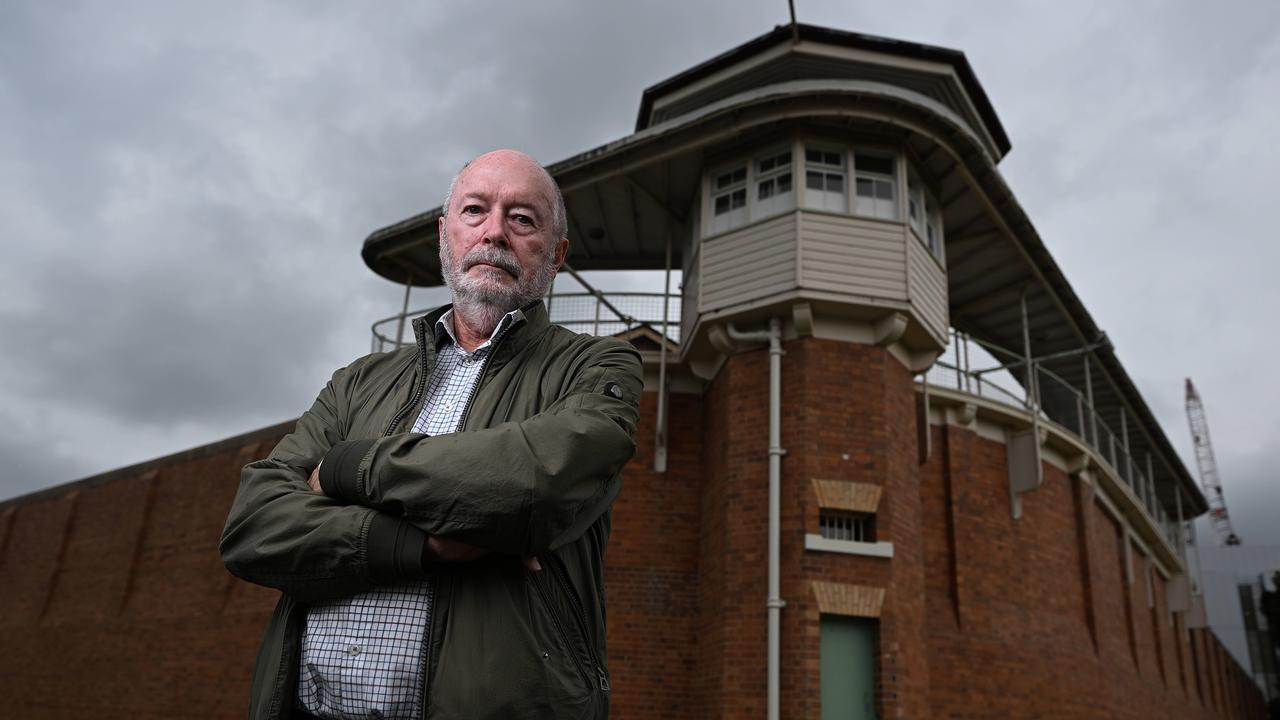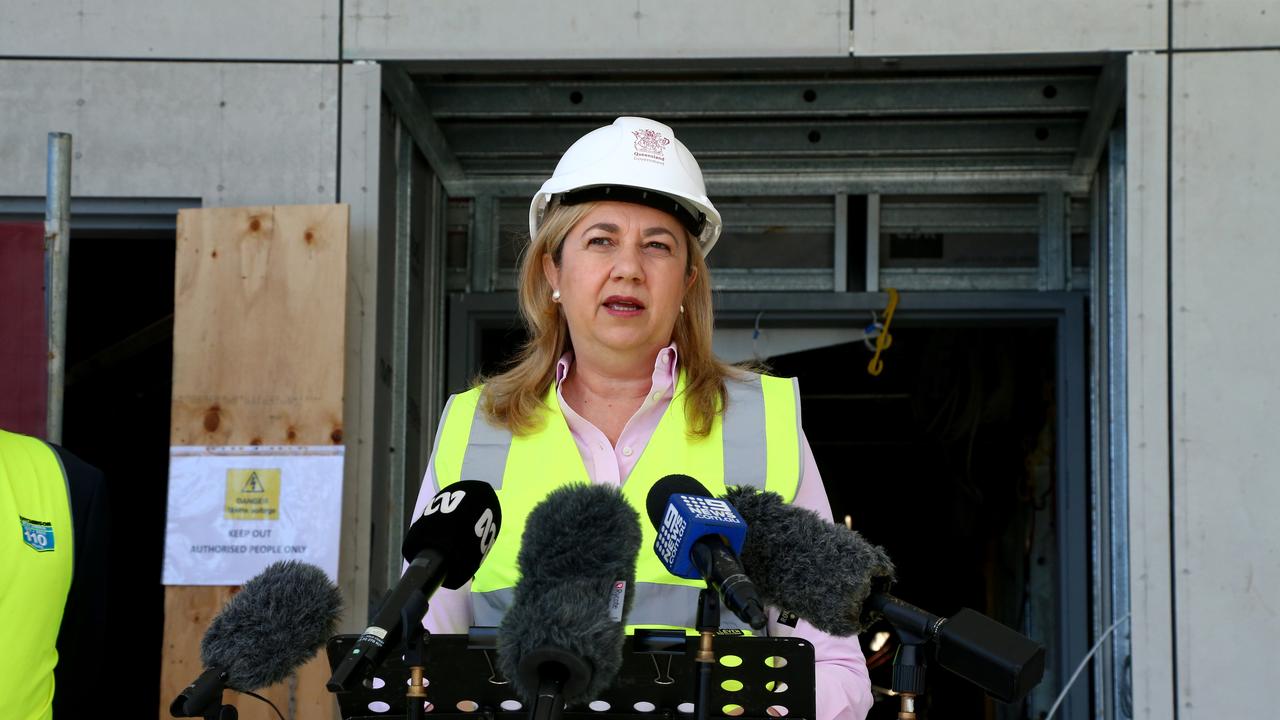Keith Hamburger AM calls for ‘therapeutic’ approach to youth detention
The man who ran Queensland’s prisons for more than a decade said youth detention centres should be revolutionised into a network of therapeutic healing centres to fix the juvenile crisis long term.
Police & Courts
Don't miss out on the headlines from Police & Courts. Followed categories will be added to My News.
One of Queensland’s leading criminal justice voices has been calling for a complete overhaul of the youth detention centre system to convert them from places of punishment to therapeutic healing centres.
Former director-general of Queensland Corrective Services Keith Hamburger AM proposes a new network of ‘therapeutic’ detention centres across Queensland that would see serious repeat offenders locked away until they can prove that they can control themselves.
The man who oversaw the state’s corrective services between 1988-97 said the therapeutic healing centres would fix the youth crime crisis long term and would be based on the best performing criminal justice systems from around the world has been.
But it’s a solution mostly ignored by both sides of politics.
“Nobody wants to blink first, but what I am talking about is not soft on crime, it is about being practical,” Mr Hamburger said.
“The progression from those initial crimes to the serious stuff is pretty fast, the quicker we can get them off the street the better.”

The comments come as authorities grapple with the latest horror fatality that was allegedly caused by a 13-year-old offender who was behind the wheel of a stolen Mercedes Benz when he caused a multi-car pileup, killing three women.
Mr Hamburger said children found guilty of serious crimes causing death are likely to get long jail sentences that would ultimately fail to rehabilitate them.
“Youth detention centres are criminogenic, which means they make the child worse,” he said.
“We know that 90 per cent of children who are sentenced to youth detention come back within 12 months of their release and if a child is placed in detention, 90 per cent chance they will progress to an adult prison
“We have basically built mini-adult jails and put kids in them.”
For several years now Mr Hamburger has called for Queensland to scrap its current youth justice system and start fresh.
His replacement system would see young people taken into custody for several weeks when they first offend and placed in an assessment centre.
“We need to have professional staff fully assess the child for a whole range of things, like their mental and physical health, their upbringing and their education.
“This includes interviewing their parents.”
A report would be prepared that outlines a rehabilitation plan before the child is transferred to a long-term ‘therapeutic’ detention centre.
The high-risk offenders would be kept in small centres with no more than six beds, close to their homes but in the country and highly secure.
The child would have access to a team of health workers and counsellors who can help them address the cause of their offending.
This would include working with their parents to address issues around housing, education, diet and education.
The next level down would be a centre with 12 beds, but similarly highly secured and focuses on health and psychological support.
For children who are deemed low-risk, they would be placed on community-based orders with a similar level of contact with health workers.
An important difference in the replacement model is that the period of detention is based on when the children can show they are capable of controlling their impulses.
Mr Hamburger said this model is proven to work in Northern European jurisdictions where incarceration and crime rates dwarf Australia’s figures.
There is a version of this model already in play in Queensland with the State Government committing to a more therapeutic approach.
This includes the new 32-bed, West Moreton Youth Detention Centre that was built about a year ago.
News Corp understands the two new facilities announced by the State Government earlier this year would follow this approach.
Mr Hamburger said the problems we face today of a core group of repeat serious offenders started brewing in the 1970s but as society we have failed to address the cause with politicians too scared to appear weak on crime if they criticise harsh prison sentences.
“I started working in jails in 1974, the worst problems we had was people suffering from alcohol abuse, then drugs came into play and there has been a sustained degradation across low-socio-economic communities.
“We have a pretty horrendous record but we have to turn it around.”
Mr Hamburger has had a long career as a prison warden and from 1988-97 served as the director general of Queensland’s Corrective Services Commission.
In recent years he has taken his ideas to our elected leaders who he said appeared to support his concept in private but refuse to act publicly.
“I can’t seem to get any sense of urgency, they are caught up in a political argy-bargy where neither side of politics wants to change.”

This week Queensland Premier Annastacia Palaszczuk defended her government’s handling of the youth crime crisis after facing criticism for not being tough enough on youth criminals.
She rejected calls for Queensland Police Union president Ian Leavers for mandatory minimums for youth offenders whose actions cause death.
“There is a separation of power and I hope that there is a lot of education through the judiciary as well because people do want everything thrown at this to curb incidents of youth crime.
“We also have an inquiry at the moment going right around Queensland, talking to victims of crime and what more we can do to assist them.”
Mr Hamburger will be speaking in Toowoomba on May 11-12 as part of University of Southern Queensland’s Vulnerable Persons Conference.
Now in its third year, the conference will address youth justice and hear from a range of speakers including former QPS Commissioner Bob Atkinson, Queensland Family and Child Commissioner Natalie Lewis and Assistant Commissioner Cheryl Scanlon from the Queensland Police Service’s Youth Justice Taskforce.









